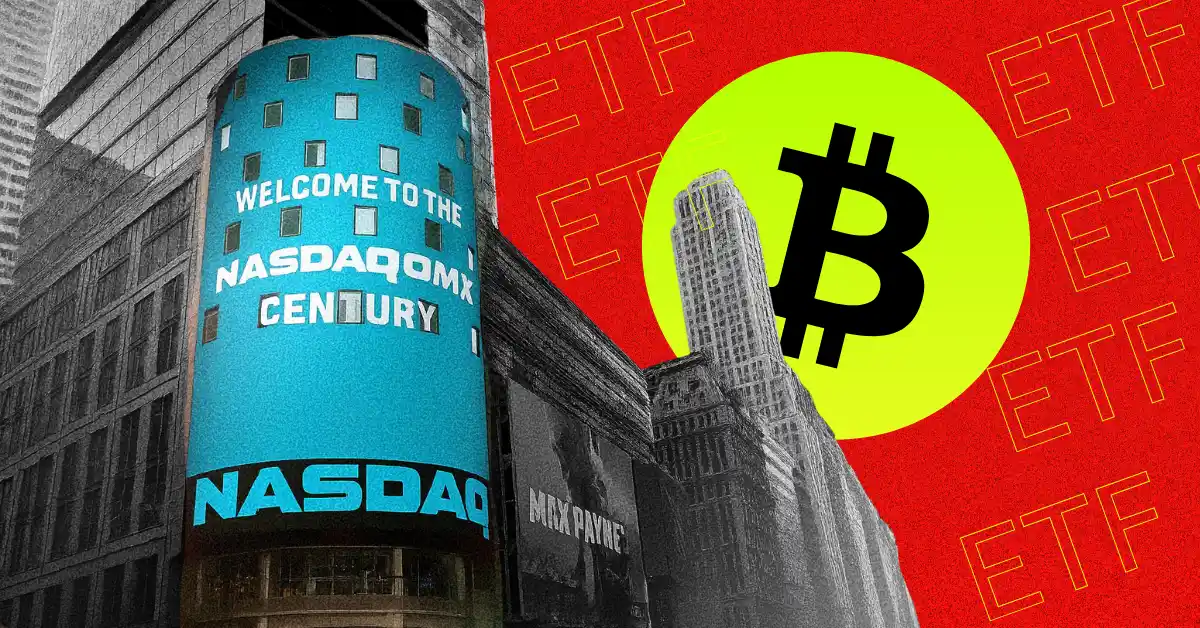
Nasdaq has taken a big step toward expanding crypto investment options by filing a new rule proposal with the U.S. SEC. The plan could change how crypto ETFs are designed and tracked in the U.S., and the crypto community is calling it a “power move” that may drive more institutional interest. However, despite growing excitement around ETFs, the SEC has yet to approve any new applications, leaving some doubts about whether multiple ETF approvals will happen by the end of the year.
On June 2, Nasdaq submitted a Rule 19b-4 filing to the SEC to expand the benchmark for the Hashdex Nasdaq Crypto Index US ETF (NCIQ). The proposed change would replace the current two-asset benchmark, focused only on Bitcoin and Ethereum, with the more inclusive Nasdaq Crypto Index (NCI).
The NCI now includes nine major cryptocurrencies, mainly Bitcoin (BTC), Ethereum (ETH), XRP, Solana (SOL), Cardano (ADA), Stellar Lumens (XLM), Chainlink (LINK), Litecoin (LTC), and Uniswap (UNI). With this, Nasdaq is aiming to offer a more complete snapshot of the digital asset landscape.
Although the benchmark has expanded, the Hashdex ETF is still legally restricted to holding only BTC and ETH due to current SEC regulations. This creates what’s known as a tracking error; the ETF follows a broader index but doesn’t yet reflect all its assets. To manage this gap, Hashdex uses a sampling strategy to approximate the index’s performance without fully matching it.
The SEC has until November 2, 2025, to approve or reject Nasdaq’s proposal. If approved, it could open the door for the ETF to invest directly in all nine NCI assets, offering greater exposure to altcoins and potentially boosting investor confidence in regulated crypto investment vehicles.
This move comes amid rising institutional interest in diversified crypto products. Nasdaq’s filing signals a significant step toward broader regulatory acceptance and ETF evolution, one that could bring XRP, SOL, ADA, and XLM closer to mainstream U.S. investment platforms.
Yes, including more altcoins in regulated ETFs could offer institutions diversified, regulated crypto exposure, potentially increasing their interest and shaping future portfolio strategies.
Long-term benefits include greater market legitimacy, increased liquidity, diversified investment opportunities for traditional investors, and potentially more stable price discovery for these altcoins.
Early exposure to the current BTC/ETH-only ETF might offer a strategic advantage if investors believe the price reflects future altcoin inclusion, potentially capturing upside once the broader index is approved.
CoinPedia has been delivering accurate and timely cryptocurrency and blockchain updates since 2017. All content is created by our expert panel of analysts and journalists, following strict Editorial Guidelines based on E-E-A-T (Experience, Expertise, Authoritativeness, Trustworthiness). Every article is fact-checked against reputable sources to ensure accuracy, transparency, and reliability. Our review policy guarantees unbiased evaluations when recommending exchanges, platforms, or tools. We strive to provide timely updates about everything crypto & blockchain, right from startups to industry majors.
All opinions and insights shared represent the author's own views on current market conditions. Please do your own research before making investment decisions. Neither the writer nor the publication assumes responsibility for your financial choices.
Sponsored content and affiliate links may appear on our site. Advertisements are marked clearly, and our editorial content remains entirely independent from our ad partners.
Bitcoin has once again tested investor conviction. After revisiting levels last seen during the 2025…
On February 6, the crypto market saw a sharp crash as Bitcoin plunged nearly 15%,…
Recently, the shift toward a "risk-off" sentiment is largely driven by a more hawkish U.S.…
The price of XRP continued to move lower this week, extending its corrective phase after…
Uniswap (UNI), one of the top blockchain projects in the decentralized exchange sector, has lost…
Despite the recent volatility in digital asset markets, Matt Hougan, chief investment officer at Bitwise…